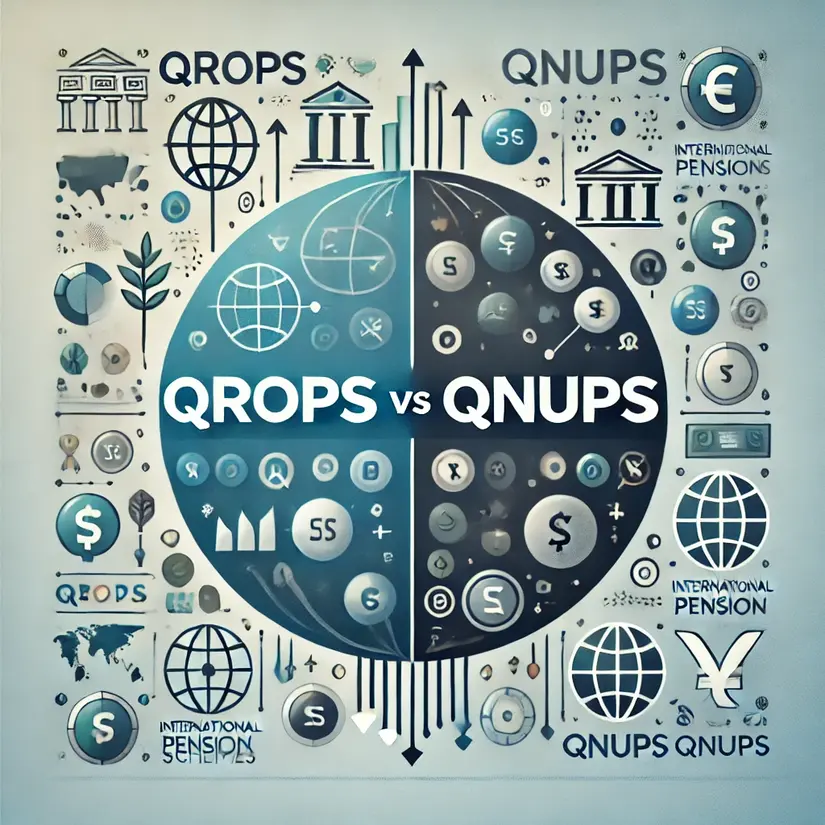This post will mainly discuss the difference between QROPS and QNUPS, as well as what they cover.
Qualifying Recognised Overseas Pension Schemes and Qualifying Non-UK Pension Schemes are important for expats thinking about retiring overseas. This is especially true for those who have accrued pensions in the UK.
If you are looking to invest as an expat or high-net-worth individual, which is what I specialize in, you can email me (advice@adamfayed.com) or WhatsApp (+44-7393-450-837).
This includes if you are looking for alternatives or a second opinion.
Some of the facts might change from the time of writing, and nothing written here is formal advice.
For updated guidance, please contact me.
What is QROPS pension?
It is a non-UK pension scheme that satisfies certain criteria in the UK and is approved by HMRC, enabling it to receive transfers from pension plans that are registered in the country.
Expats who have accrued a UK pension but want to retire overseas frequently use it.
Individuals can take out up to 25% of their whole pension fund through QROPS without having to pay income tax in the UK.
A QROPS might also reduce currency risk, protecting your UK pension.
What is a QNUPS pension?
It is also a form of non-UK pension plan that is established outside of the country but complies with HMRC’s regulations.
These consist of:
- being acknowledged for tax purposes in the country in which it is founded
- being regulated there
- guaranteeing that retirement income is generated from no less than 70% of the funds
QROPS vs QNUPS
Reporting Requirements
In contrast to QROPS, QNUPS providers are not required to submit reports to HMRC.
Thus, although QNUPS are subject to HMRC’s requirements in order to be eligible for specific tax exemptions, they are not subject to continuous reporting requirements as QROPS are.
Investments
In general, QROPS provide fewer opportunities for investment than QNUPS, with a primary concentration on traditional pension assets like equities, bonds, shares, and regulated investment vehicles. Collectibles and residential real estate are examples of non-occupational assets that cannot be included.
Tax Benefits
If you’re living abroad, you can move your UK pension to a QROPS; otherwise, QNUPS are better suited for people searching for tax-friendly retirement savings if they can’t transfer from UK pensions.
High-net-worth individuals frequently employ QNUPS because they can minimize inheritance tax.
You can choose beneficiaries who will receive any residual capital or assets kept within the QNUPS.
Contribution Limits
In contrast to UK pension systems, which offer both lifetime and yearly allowances, QNUPS does not have a contribution cap.
Because of this, you can save a significant amount of money for retirement without being restricted by UK pension laws.
Regulation
The regulations pertaining to QNUPS might be intricate, necessitating cautious handling and even expert counsel to guarantee adherence. Significant tax fines may result from poor management.
Meanwhile, QROPS, although subject to regulation as well, typically have simpler reporting requirements, which may facilitate their management for certain individuals.
Employer contributions to a QNUPS are not permitted if you live and work in the UK. This restriction may make it more difficult for people who still have connections to the UK labor market to use a QNUPS as their main retirement vehicle.
Future modifications to UK or foreign tax regulations may have an effect on QNUPS’ benefits and add a layer of ambiguity that may not be as noticeable with QROPS, which have pension transfer procedures in place.
Pained by financial indecision? Want to invest with Adam?

Adam is an internationally recognised author on financial matters, with over 760.2 million answer views on Quora.com, a widely sold book on Amazon, and a contributor on Forbes.




















Discussion about this post